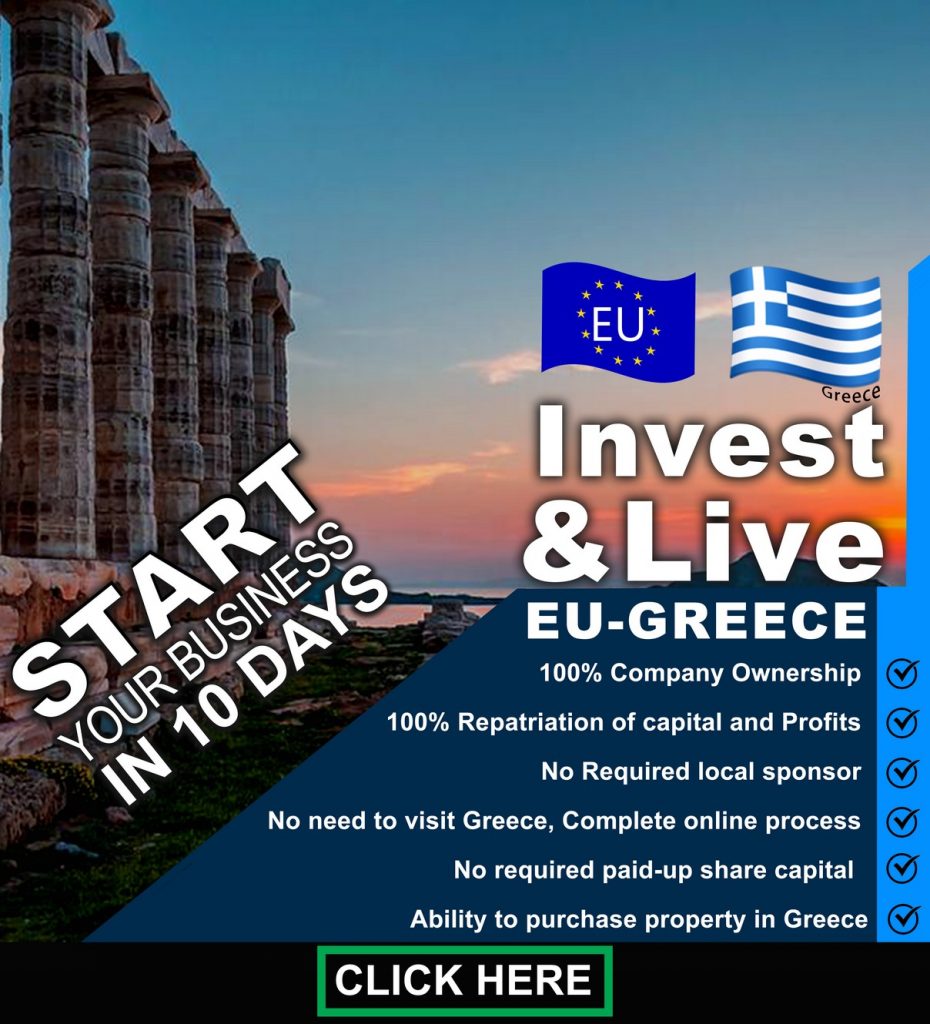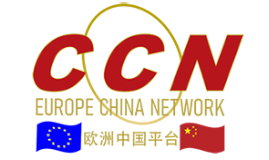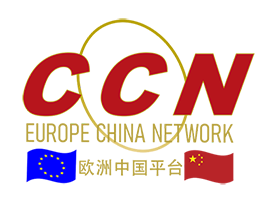Greece is an EU member state, offering a convenient Destination for Global services

Benefits of Doing Business in Greece
Greece is a country in the Balkans situated in South Eastern Europe. Classified as an advanced and high-income economy, Greece is a developed country with a high ranking in the Human Development Index. The Greek economy consists of the service sector which contributes 85%, industrial sector which contributes 12%, and agricultural sector which contributes 3%. Greece offers access to fast-growing and prominent regional markets being a gateway to over 140 million consumers in the Eastern Mediterranean and Southeast Europe.
Business Opportunities in Greece
- Greece is home to 18 UNESCO World Heritage Sites, long coastlines, islands, and beaches and has an excellent sunny climate and thus attracts over 20 million tourists annually.
- Greece is rich in natural resources and thus acts as a major import-export hub of minerals. It is the largest European producer of tobacco and fifth largest exporter of cotton in the world.
- Contributing almost 8% to the GDP, shipping is one of the most important and rapidly expanding sectors of the Greek economy making Greece the largest European ship owner.
- With a record of 476 fish species, Greece supports aquaculture and thus tends to have a fostering fish industry.
Facts to Know About Doing Business in Greece
Here are a few facts you must know while starting a company in Greece.
1. Business Culture in Greece
Greece culture shapes acceptable business practices. While government is trying hard to be pro-business and bring in as many incentives for business people as possible, corruption in Greece persists to a fairly large extent. Greeks also maintain traditional views of democracy and honor. Meetings often entail vigorous exchanges of ideas but expats should take care when disagreeing with a colleague, which should be done in such a way that doesn’t reflect poorly on the other person. A lot of importance is placed on experience as well, and employees are expected to respect seniority.
2. Language of Business
While there are many Greeks who speak fluent English, having a working grasp of the Greek language or going into business with a first language speaker are essential for a successful business.
3. Political Structure
Greece is a country with parliamentary republic. While the country is politically stable and is trying to improve the business sector in Greece, it can be often seen that the new schemes which are pro-business in nature are not executed properly resulting in less or no improvement in the particular area.
Benefits of Starting a Business in Greece
- Greece offers high-quality logistics and communication infrastructure
- It has a highly educated, skilled and talented workforce
- Greece boasts of a strong entrepreneurial tradition
- The cost of labor in the country is low
- Greece offers an exemption of import duties on goods that are manufactured in the UK
Booming Sectors in Greece
- Food and Beverage
- Renewable energy
- Shipping equipment and services
- Information and Communication technologies
- Travel and Tourism
- Cosmetics and Beauty products
- Maritime and Border Security
https://www.businesssetup.com/blog/guide-doing-business-greece
For a sustainable tourism industry
According to data released annually by the Association of Greek Tourism Enterprises (SETE) and the Bank of Greece, tourism is a major contributor to Greek economy and a sector of rising competitiveness at global level.
Tourism accounts for 18% of Greece’s GDP and employs more than 900,000 people, accounting for one fifth of the workforce.
The number of international tourist arrivals rose from 15,000,000 in 2010 to over 16,000,000 million in 2011, marking a 10% increase. This year 17,000,000 (almost twice the country’s population) international tourist arrivals are expected.
Did you know?
Greece has more international airports than most countries.
Investment Opportunities
The increasing number of tourists and the evolving profile of today’s traveller demand new ideas and infrastructure projects. In Greece, investors will find a wide spectrum of opportunities, a friendly environment, and some of the most beautiful locations in the world.
Although the country’s tourism infrastructure is well developed, Greece is committed to establishing itself as a 12-month destination. Its Mediterranean climate is ideal for activities such as year round golf and trekking and it is estimated that one million Europeans would consider Greece as a second home destination.
The targeted sectors for expansion include the development of integrated resorts and residential real estate, golf courses and sports tourism, wellness and health tourism, upgraded and new marinas, conference centers, agrotourism products, religious tourism, thermal spas and thalassotherapy centers, culinary tourism, and a wide range of thematic offerings related to Greece’s rich cultural and historical heritage. Read more…
Growth Drivers
Investment Incentives Law
The New Investment Law for supporting Private Investment for Economic Growth, Entrepreneurship, and Regional Cohesion, was voted on and passed by the Greek Parliament and is to be implemented following the relevant Presidential Decrees and Ministerial Decisions. Read more…
Public Private Partnership
Greece’s newly implemented PPP (Public Private Partnership) scheme provides significant opportunities to investors to participate in new infrastructure projects, including marinas and thermal springs. Read more…
National Strategic Reference Framework
The National Strategic Reference Framework (NSRF) for the years 2007-2013 establishes the broad priorities for EU Structural Funds Programmes in Greece. Greece’s NSRF seeks to achieve a balanced development of the country, with 82 percent of its budget focusing on regional projects. With a total budget of almost €40 billion, NSRF will advance projects directly and indirectly related to tourism development and will provide investors with ample opportunities to participate in a wide number of projects.
For tourism, NSRF provides significant financial support, with a budget of more than €500 million until 2013. A core NSRF objective is to increase demand and upgrade the quality of the tourist product and tourist services at all levels. NSRF support focuses on:
prolonging the tourist period throughout Greece, and reducing seasonality
promoting the country’s international appeal as a safe and attractive tourist destination
Increasing the number of foreign visitors
Reinforcing domestic tourism.
Investment in the tourism sector will include the upgrade of marinas, the promotion of special forms of tourism, the creation of cultural pathways, the upgrade of winter tourism infrastructure, and the subsidizing of private investments, according to the new Incentives Law that was implemented in 2011.
Read more…
Sustainability
Inherent in Greece’s tourism development policy is the issue of sustainability. Many hotels and resort complexes are installing photovoltaic systems in an effort to become more carbon neutral. The need for new and efficient building solutions, desalination plants, energy efficient power supplies, closed loop resource systems, and software monitoring systems are just some of the areas in which Greece’s tourism sector will take advantage of new technologies for years to come.
Also, Greece is promoting its unique ecosystems and nature reserves, many listed under the Ramsar Treaty. These are exceptional destinations where visitors may enjoy some of the most diverse flora and fauna in Europe. From bird watching to mountain hiking, activities that can be combined with distinctive lodging and singular experiences are highly popular for today’s traveler that is seeking out-of-the-ordinary experiences.
Human Resources
Because Greece, a country of 11 million inhabitants, hosts more than 17 million visitors, education and training in tourism services is paramount. The workforce is multilingual, well versed in the tourism sector, and willing to respond to new challenges. From management to catering, human resources for tourism enterprises is a Greek strength. Read more…
Ministry of Culture and Tourism
Reflecting the importance of tourism to the Greek economy, a ministry dedicated to formulating and overseeing tourism policy is a core component of the Greek government. The Ministry of Culture and Tourism coordinates a wide number of diverse policies and developments with other ministries so that Greece’s tourism sector remains strong, vibrant, and responsive. Read more…
See also: Greece Joins “50,000 Tourists” Initiative and Balkan Turismo
Greek National Tourism Organisation
The Greek National Tourism Organisation (GNTO), under the direction of the Ministry of Culture and Tourism, is responsible for promoting tourism in Greece and oversees a number of organisations related to tourism education, development, and real estate. Read more…
See also: Greece at the Vienna Tourism Fair, Greece at the World Travel Market and Visit Greece…on your Plate!
Global Marketing Support
Greece as a tourism destination enjoys an extensive, multilingual, global marketing campaign in all media. In addition, Greece is fully represented at all key tourism trade shows and is promoted by major travel and tour operators worldwide.
See also: Offices Abroad
https://www.mfa.gr/cyprus/en/about-greece/tourism/for-sustainable-tourism-industry.html
The agricultural sector in Greece remains a very important sector of economic activity and employment for Greece. The primary sector employs 12.4% of total labour force in Greece, amounting to some 600,000 people (2010). Agriculture contributes roughly 4% of GDP. Exports of agricultural products account for one third of total exports in Greece. Main categories of exported products are fruits, vegetables and olive oil while main imports include meat and dairy products.
Organic farming has grown dramatically over the last years constituting an important priority in the sustainable development of the sector in Greece.
Overall, the food and drinks industry is a vital component of the economy, since it has become a dynamic, competitive and export-oriented sector.
Did you know:
Agriculture contributes 4% of the national GDP, almost the double of the European average.
Approximately 70% of the Greek land cannot be cultivated because of poor soil or because it is covered by forests.
Greece adopted a system of farming cooperatives as early as 1915.
In 2010, Greece was the European Union’s largest producer of cotton and pistachios and ranked second in the production of rice, third in the production of figs and almonds, tomatoes and water melons, and fourth in the production of tobacco.
Between 2000 and 2007 organic farming in Greece increased by 885%, the highest change percentage in the EU.
In 2007, Greece accounted for 19% of the EU’s fishing haul in the Mediterranean Sea and ranked first in the number of fishing vessels in the Mediterranean among European Union members.
https://www.mfa.gr/missionsabroad/en/about-greece/food-and-gastronomy/facts-and-figures.html






















